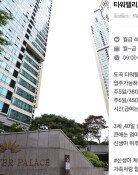Grand National Party Finds Governments First Half Term Lacking
Grand National Party Finds Governments First Half Term Lacking
Posted August. 25, 2005 02:59,
A day away from the turning point (August 25) of President Roh Moo-hyuns five-year term, the ruling and opposition parties announced their evaluations of the first half term of the Participatory Government.
The Grand National Party (GNP) announced that the incumbent governments performances have not met the expectations in each field at the time of its launch. During a discussion meeting among the ruling Uri Party, some lawmakers said that there have been some achievements in the political, diplomatic and security sectors, but that the governments performance in the economic sector has not been enough to recover the sluggish economy.
In a discussion meeting titled, The Evaluation of the Roh Moo-hyun Administrations Performance in the First Half of Its Term, hosted by the GNP and held in the National Library Hall in Yeouido, Seoul, Park Hyo-jong, a national ethics professor at Seoul National University, criticized, Even if the Roh Moo-hyun administration showed its sincerity on reform, it has strikingly displayed its amateurism by pushing ahead with reform agendas.
Park said, The incumbent government has cried for justice to an excessive degree, pointing out that the person in power, who is confident of his or her own moral superiority, is more dangerous because he or she is unwilling to acknowledge his or her critics or opponents morality. He also added, The president has shown non-integrated and anti-harmonious leadership, and pursued only politics for victory, rather than balanced politics through reconciliation and negotiations.
In an evaluation of the economy, Jeong Gyu-jae, an editorial writer for the Korea Economic Daily, criticized, The Participatory Government has given large profits to the high-income bracket by pledging reckless development projects, adding, The government is seeking to reform tax systems in a bid to win poor people over to its side again.
The ruling Uri Party held a discussion meeting titled, The Evaluation of the Participatory Governments Achievements in the First Half of Its Tenure and the Prospects and Tasks for the Second Half of Its Tenure, hosted by the Open Policy Research Institute under the party in its office building in Yeongdeungpo-gu.
Jeong Hae-gu, a social science professor at SungKongHoe University noted, The establishment of national development strategies in the middle and long term, and road maps can be viewed as the governments achievements in its half term. He added, however, In the economic and social fields, it has failed not only to come up with appropriate measures for short-term problems related to the publics livelihood, but also to bear tangible fruit.
Lee Il-young, a professor for regional studies of China at Hanshin University, said, The government has tried to create a systemic environment for fair competition and establish new economic ethics, but it has often let the proper timing for managing macroscopic economic policies slip away.
Meanwhile, the Democratic Labor Party (DLP) also issued a comment saying that during the governments first half term, there were no measures for ordinary people. They castigated, If the government is compared to a soccer team, its performance would almost score an own goal only supported by back and cross passes.
DLP head lawmaker Chun Young-se denounced the president, saying, The president has devoted himself to political realignment by proposing an idea of a coalition government and he has not sought to come up with measures to mitigate difficulties of the peoples livelihood.
In its overall evaluation, the GNP insisted, The 900 days of the governments first half term can be regarded as containing the five following disturbances: breach of constitutional order; uproar from ideological groups; disturbance of personnel management; a great commotion in state affairs; and confusion in value systems.
Dong-Yong Min mindy@donga.com
Headline News
- Med professors announce intention to leave hospitals starting Thursday
- Bridge honoring Sgt. Moon Jae-sik unveiled in Pennsylvania
- Chief of Staff Chung tells presidential secretaries to stay away from politics
- US FTC bans noncompete agreements
- N. Korea launches cyberattacks on S. Korea's defense companies







